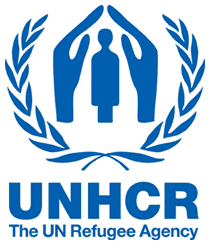Ms. R came to the US from her home country in central Africa where, in her early teenage years, she was subjected to a horrifying sexual initiation ritual. Even though she was little more than a child at the time, Ms. R endured repeated insertion of extremely hot items into her vagina as well as forced sex with a stranger. Many years later, as an adult, Ms. R continued to suffer chronic pain as a result of these experiences, as well as the persistent ill effects of psychological trauma. But, recently, with the help of Physicians for Human Rights’ Asylum Network, which documented the forensic evidence of her injuries, Ms. R took a significant step down the path to healing when she was granted asylum.
Ms. R is just one of millions of refugees who have received safe haven in the United States with the assistance, support, and leadership of the office of the United Nations High Commissioner for Refugees (UNHCR). This year — December 14, 2010 — marks the 60th anniversary of the founding of UNHCR, and of the beginning of coordinated international humanitarian protections.

UNHCR, a two-time recipient of the Nobel Peace Prize, has done critical work fleshing out the practical meaning of major international treaties on refugee protection and holding nations accountable for the commitments they have made by adhering to these treaties. The agency is a leader in calling for the end of detention of asylum seekers, and it has spotlighted many other similar concerns for the rights of refugees in its advocacy with governments. UNHCR’s work and influence extend far beyond policymaking circles. The agency is often the first line of assistance to vulnerable migrants, providing food, water, counseling and cultural integration services, and much more. UNHCR staff register refugees, and secure permanent refuge to those who cannot return home.
In 2009, UNHCR served more than 34 million people around the world. By comparison, the US has, in recent years, resettled 60,000 to 70,000 refugees identified by UNHCR annually, and has granted asylum to 20,000 to 25,000 people a year. Our country’s assistance to vulnerable migrants is just a drop in the bucket of need, and demonstrates the vital importance of coordinated and comprehensive international efforts.
UNHCR will mark its anniversary this year by asking governments around the world to make new pledges to refugee protection. To demonstrate our national commitment to survivors of human rights abuses, the Obama Administration should consider responding to UNHCR’s call with the following commitments:
- Eliminate the rule that asylum seekers must request protection within one year of their arrival in the US. There are numerous legitimate reasons why traumatized people do not come forward immediately, from lack of knowledge of the asylum system and their own eligibility to the after-effects of PTSD. The filing deadline results in thousands of denials that put refugees back in harm’s way.
- Re-examine the scope of what is considered “material support to terrorists,” so that innocent victims are no longer barred from protection in the US. Thousands of refugees are currently in legal limbo because of an over-broad reading of the ban on immigration status for anyone who has supported terrorist activities. The government’s extreme interpretation of the law has affected, for example, health professionals who have treated a member of a terrorist organization merely out of duty to practice medical neutrality. The US must limit application of the terrorism-support ban to those who have intentionally acted to further illegal and harmful terrorist activities.
- Eliminate detention of asylum seekers. As PHR’s study From Persecution to Prison has shown, treating asylum applicants like criminals is mentally and physically devastating to them. Unless the government can show that an asylum seeker is a danger to the community or unlikely to appear for immigration court hearings, there is no justification for incarcerating survivors of human rights abuses who are seeking protection under the law.
- Ratify treaties recognizing and protecting the rights of women and children. The US holds itself out as a strong defender of human rights, yet we are one of only seven UN member-nations that have not fully ratified the Convention on the Elimination of All Forms of Discrimination Against Women (CEDAW), and one of only two who have declined to ratify the Convention on the Rights of the Child (CRC). These failures are both shocking and embarrassing. It is long past time for the US to make a public international commitment to women’s and children’s human rights.
The non-profit organization USA for UNHCR recently launched an effort called the Blue Key Campaign to generate American support and funding for UNHCR in its anniversary year. Learn more and declare your support for this agency’s vital work.
